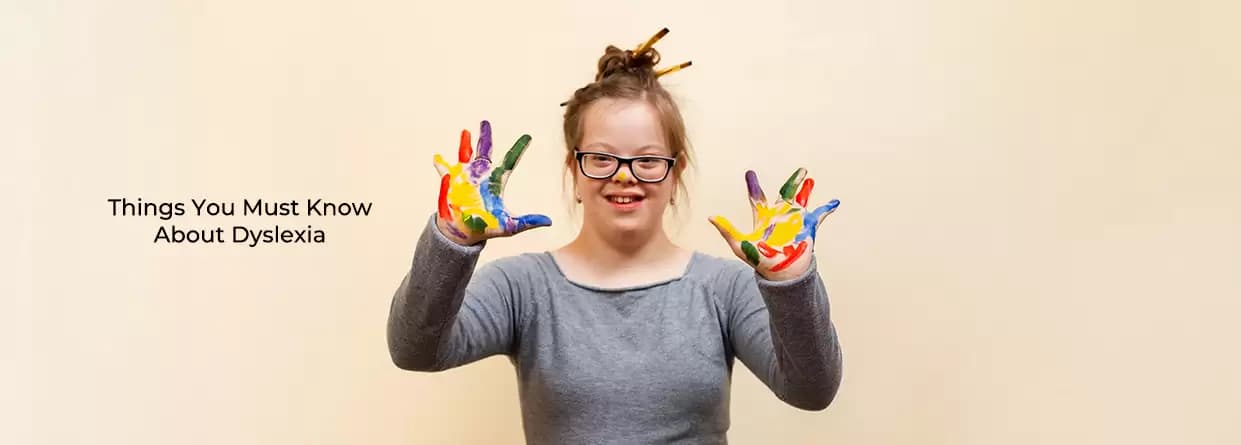
Dyslexia is a neurological disorder that affects the learning ability of the individual. People affected by this condition do not have trouble seeing the language but manipulating it. It is estimated that 1 in 5 people show some signs of dyslexia which can present challenges on a daily basis. Dyslexia usually hampers the ability to read, write, spell and speak.
Kids with dyslexia do not have problems with intelligence, hearing or vision. While a common belief around dyslexia is associated with seeing letters and words backwards, the truth is they see things the same way as everyone else.
However, they may get confused with similar-looking letters such as ‘b’ and ‘d’. This blog contains information regarding dyslexia and how to manage the condition.
Doctors usually group dyslexia based on years of study and research. Based on the severity of symptoms and diagnosis, dyslexia types have been categorized into the following:
The primary cause of dyslexia is not known but the condition stems from different parts of the brain. Neurologists associate phonological processing problems as one of the major causes of dyslexia. Kids with dyslexia can have a hard time putting together letters and blending the sounds of these letters into words.
Heredity is a major risk factor for dyslexia. The condition is mostly linked to genes and often runs in families. While a common belief associates a low level of intelligence with dyslexia, there is no evidence that supports dyslexia is related to the general level of an individual’s intelligence. However, the condition affects the general thinking of the individual.
Dyslexia symptoms occur gradually in children and adults. While it is often difficult to recognise the early symptoms of dyslexia in kids, there are some common clues that can indicate the problem. The symptoms of dyslexia can vary depending on the individual’s neurological and medical health.
People often ignore common signs of dyslexia among children. However, the problem may become apparent once the child starts to read. Here are some signs that may indicate your child is suffering from dyslexia:
If your child is in school, the symptoms are more evident which can be easier to diagnose. If your child is experiencing the following it is most likely associated with dyslexia:
There is no single test for dyslexia which can determine the primary cause of the condition. The aim of the diagnosis is to rule out other neurological conditions from dyslexia. The doctor usually examines your child’s medical history and educational issues and recommends certain dyslexia tests which can determine the possibility of the condition.
These tests include a series of questionnaires along with visual, hearing and brain tests, psychological evaluation, and other tests for reading and academic skills. It is important to be aware of your child’s symptoms if they are showing signs of academic difficulties. Such children should be encouraged and nurtured with patience and care.
There is no known treatment for dyslexia. Since the dyslexia diagnosis involves several tests and analyses, most people with this condition do not know they have it. Children are often most affected by the condition and often hampers their mental health. Therefore, it is important to address the issue to develop a proper treatment plan.
The doctor recommends several treatment methods and educational techniques to help with the child’s development. Several teaching techniques involving hearing, vision and touch to improve reading and comprehensive skills. Dyslexia treatment for children focuses on learning to recognize the use of sounds that make the words, a comprehensive approach to reading and understanding letters and words, and building vocabulary to recognize and understand words.
With dyslexic children, it is important to have patience and understanding. Some parents prefer to home-school their children and practise comprehensive learning. If your child or anyone you know is suffering from dyslexia, it is important to diagnose the condition and proceed with the treatment.
Dyslexia may not go away completely, but early treatment can improve the thinking ability to perform day-to-day tasks more efficiently.
Is dyslexia a mental illness?
Dyslexia is not considered a mental illness. It is a learning disorder which usually does not go away completely.
Is dyslexia part of autism?
No, dyslexia and autism are two different types of conditions. Dyslexia involves difficulty interpreting words, pronunciations, and spellings whereas autism is a developmental disability caused by differences in the brain. However, disorientation is a common sign in both conditions.
At what age is dyslexia diagnosed?
Dyslexia can be diagnosed at any age. However, it is more prominent in children showing signs of academic difficulties, trouble speaking, etc.
Can dyslexia be cured?
There is no permanent treatment for dyslexia and the condition can be present throughout lifelong. However, there are certain educational techniques, therapies and medications that can help manage the symptoms of dyslexia.
Do dyslexics have a good memory?
Dyslexia usually affects short-term memory in some cases. Patients who are affected with short-term memory have difficulty remembering names, dates or important tasks.
© 2024 CMRI Kolkata. All Rights Reserved.